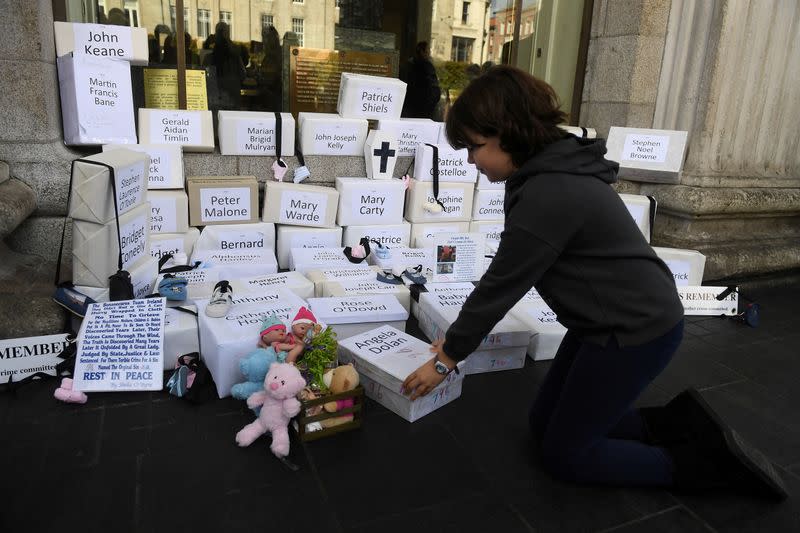By Padraic Halpin
DUBLIN (Reuters) – An Irish inquiry into alarming mortality rates among newborns in homes run by churches for single mothers will release its final report on Tuesday, unveiling one of the Catholic Church’s darkest chapters and leading to demands for compensation. state-owned.
The Church’s reputation in Ireland has been destroyed by a series of scandals about pedophile priests, asylum abuses, forced adoptions of illegitimate babies and other painful issues.
Pope Francis implored forgiveness for the scandals during the first papal visit to the country in almost four decades in 2018.
The remains of 802 children, from newborns to three-year-olds, were buried between 1925 and 1961 in just one of the so-called Mother and Baby Houses, a 2017 interim report revealed.
Prime Minister Enda Kenny described the cemetery in Tuam, in western Galway County, as a “chamber of horrors”.
The investigation was launched six years ago, after evidence of an unidentified mass cemetery in Tuam was discovered by local amateur historian Catherine Corless, who said she was haunted by childhood memories of skinny children at home.
Relatives claimed that the babies were mistreated because they were born to single women who, like their children, were seen as a blot on Ireland’s image as a devout Catholic nation.
Government records show that the death rate of children in homes where tens of thousands of women, including victims of rape, were sent to give birth, was often more than five times that of children of married parents.
The Church administered many social services in Ireland in the 20th century. Although run by nuns, the houses received state funding and, like adoption agencies, were also regulated by the state.
Although Irish voters have overwhelmingly approved abortion and gay marriage in referendums in recent years, the scandal of the mother and baby house has revived anguish over how women and children were treated in the not-too-distant past.
The 3,000-page report makes reading difficult, Deputy Prime Minister Leo Varadkar said on Monday.
“One of the things that hit me was the extent to which it was a huge social failure and a huge shame on society for having a stolen generation of children who did not have the education they should have,” he told the national broadcaster RTE.
(Reporting by Padraic Halpin; Editing by Mike Collett-White)
